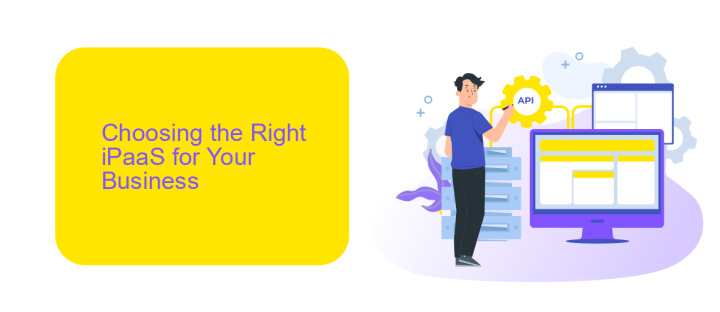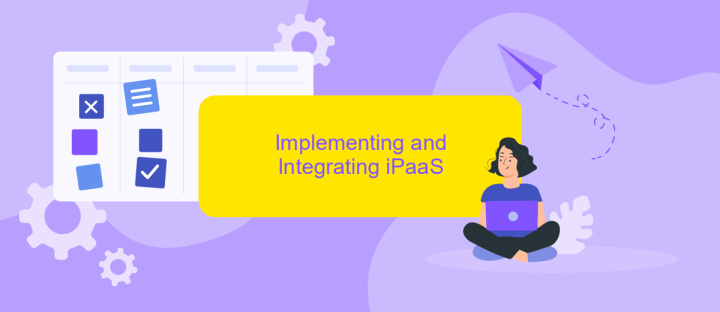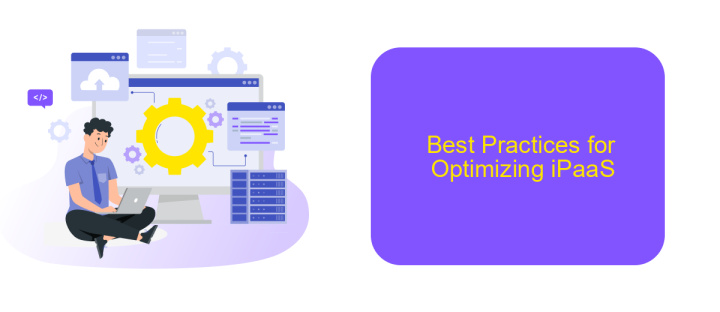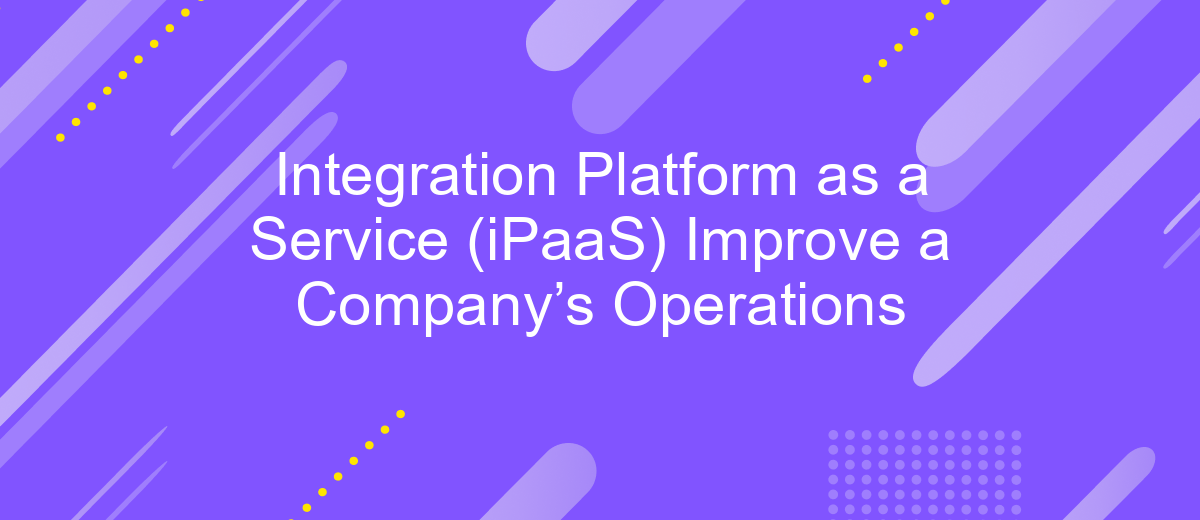Integration Platform as a Service (iPaaS) Improve a Company’s Operations
In today's rapidly evolving digital landscape, businesses must seamlessly integrate various applications and data sources to stay competitive. Integration Platform as a Service (iPaaS) offers a robust solution to this challenge by streamlining and automating integration processes. This article explores how iPaaS can significantly enhance a company's operations, driving efficiency, reducing costs, and enabling more agile responses to market demands.
Benefits of iPaaS in Operational Efficiency
Implementing an Integration Platform as a Service (iPaaS) can significantly enhance a company's operational efficiency by streamlining processes and reducing manual intervention. iPaaS solutions like ApiX-Drive enable seamless integration of various business applications, ensuring smooth data flow and real-time updates.
- Automation: iPaaS automates repetitive tasks, freeing up employee time for more strategic activities.
- Data Accuracy: By integrating disparate systems, iPaaS reduces the risk of data entry errors and ensures consistent information across platforms.
- Scalability: iPaaS can easily scale with your business, accommodating new applications and increased data volumes without additional infrastructure.
- Cost Efficiency: Reducing the need for manual data handling and custom coding lowers operational costs.
- Real-Time Insights: Integrated systems provide real-time data analytics, aiding in quicker decision-making and enhanced business intelligence.
By leveraging services like ApiX-Drive, businesses can efficiently set up and manage integrations without extensive technical expertise. This not only accelerates the implementation process but also ensures that the integrations are robust and reliable, ultimately leading to improved operational performance and business growth.
Choosing the Right iPaaS for Your Business

Choosing the right iPaaS for your business is crucial for streamlining operations and enhancing workflow efficiency. Begin by assessing your specific integration needs, such as data synchronization, application connectivity, and automation requirements. Ensure the iPaaS platform supports the necessary protocols and offers robust security features to safeguard sensitive information. Scalability and ease of use are also vital; a user-friendly interface can significantly reduce the learning curve for your team.
Consider platforms like ApiX-Drive, which offer extensive pre-built connectors and customizable integration options. ApiX-Drive simplifies the integration process, allowing you to connect various applications without extensive coding knowledge. Evaluate the platform's customer support and documentation to ensure you have the resources needed for smooth implementation and troubleshooting. By carefully selecting an iPaaS solution that aligns with your business goals and technical requirements, you can optimize your operational efficiency and drive growth.
Implementing and Integrating iPaaS

Implementing and integrating an iPaaS solution can significantly streamline a company's operations by automating workflows and connecting disparate systems. The process involves several key steps that ensure a seamless integration and optimal performance.
- Identify integration needs: Assess which systems and processes need to be connected to improve efficiency.
- Select an iPaaS provider: Choose a platform like ApiX-Drive that supports the required integrations and offers user-friendly tools.
- Configure integrations: Use the iPaaS platform to set up connections between various applications and data sources.
- Test integrations: Ensure that data flows correctly between systems and that automated workflows function as intended.
- Monitor and maintain: Regularly check the performance of integrations and make adjustments as needed.
By following these steps, companies can leverage iPaaS solutions like ApiX-Drive to enhance their operational efficiency. This approach not only reduces manual tasks but also ensures that data is consistently synchronized across all systems, leading to better decision-making and improved overall performance.
Best Practices for Optimizing iPaaS

Optimizing an Integration Platform as a Service (iPaaS) involves strategic planning and continuous monitoring to ensure seamless data flow and operational efficiency. Begin by thoroughly assessing your company's integration needs and identifying the most critical processes that require automation.
Next, select an iPaaS provider that offers robust features tailored to your business requirements. For instance, ApiX-Drive provides a user-friendly interface and extensive connectivity options, making it easier to integrate various applications without extensive coding knowledge.
- Regularly update and maintain your integrations to avoid disruptions.
- Monitor performance metrics to identify and resolve bottlenecks promptly.
- Utilize built-in security features to protect sensitive data.
- Leverage real-time analytics to gain insights into integration performance.
Implementing these best practices will help your organization maximize the benefits of iPaaS, ensuring smooth and efficient operations. By leveraging tools like ApiX-Drive, you can simplify the integration process, reduce manual workload, and enhance overall productivity.
Case Studies and Success Stories of iPaaS Adoption
One notable example of successful iPaaS adoption is a mid-sized retail company that leveraged ApiX-Drive to streamline its operations. Before implementing iPaaS, the company faced significant challenges in synchronizing data between its e-commerce platform, CRM, and inventory management systems. By integrating these systems through ApiX-Drive, the company achieved real-time data synchronization, reducing manual data entry errors and improving inventory accuracy. This seamless integration not only enhanced operational efficiency but also led to a 20% increase in sales due to better inventory management and customer relationship handling.
Another success story involves a healthcare provider that adopted iPaaS to integrate patient management systems with billing and electronic health records (EHR). Utilizing ApiX-Drive, the healthcare provider automated data flow between these systems, ensuring that patient information was consistently updated across all platforms. This integration reduced administrative workload, minimized billing errors, and improved patient care by providing healthcare professionals with accurate and up-to-date information. As a result, the provider experienced a 30% reduction in administrative costs and a significant improvement in patient satisfaction scores.
- Automate the work of an online store or landing
- Empower through integration
- Don't spend money on programmers and integrators
- Save time by automating routine tasks
FAQ
How does iPaaS improve operational efficiency?
Can iPaaS integrate with existing legacy systems?
What kind of businesses can benefit from using iPaaS?
How does iPaaS handle data security and compliance?
Can iPaaS solutions be customized to fit specific business needs?
Apix-Drive is a universal tool that will quickly streamline any workflow, freeing you from routine and possible financial losses. Try ApiX-Drive in action and see how useful it is for you personally. In the meantime, when you are setting up connections between systems, think about where you are investing your free time, because now you will have much more of it.


